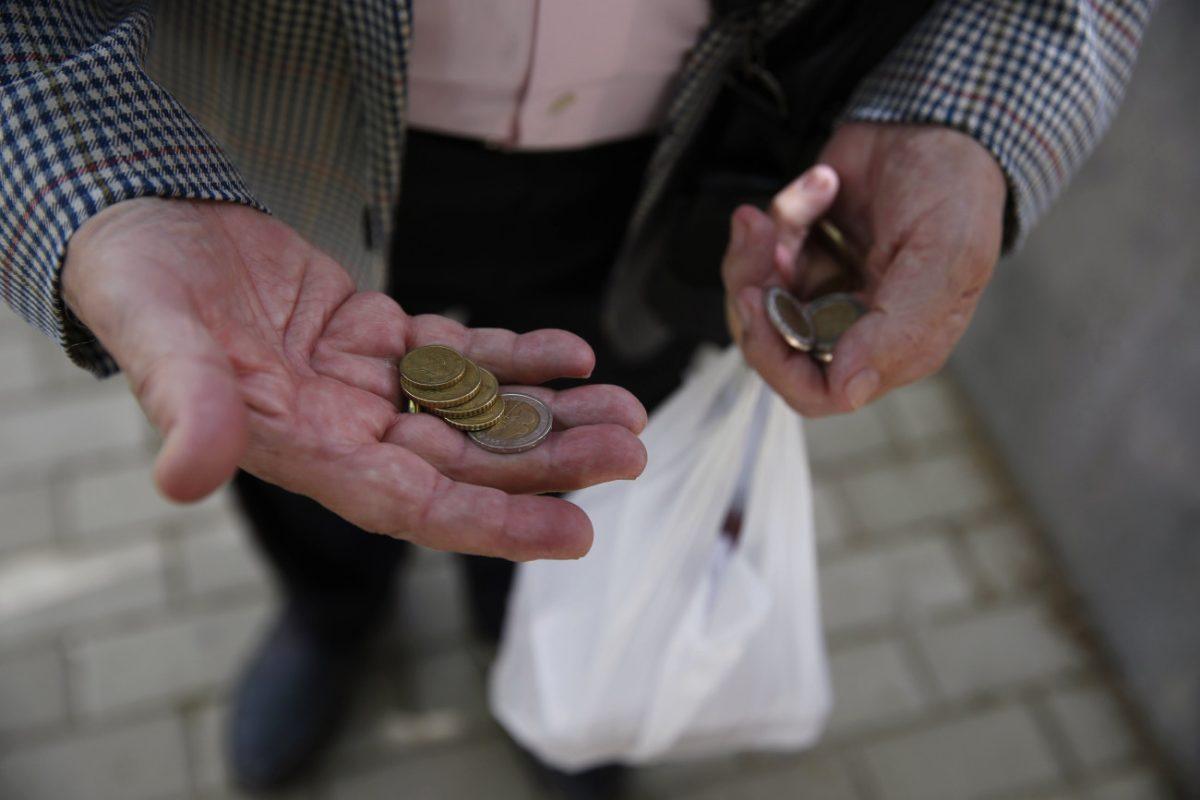More than one in four Greeks or 26.9 percent of Greece’s population is on the threshold of poverty or social exclusion, according to a Eurostat report published Wednesday. In absolute numbers, this translates to 2,740,051 people in a country of 10.4 million.
The report places Greece behind only Bulgaria (30.3 percent) and Romania (27.9 percent) in the 27-member European Union, in terms of the highest proportion of people at risk of poverty or social exclusion. The EU average stands at 21 percent.
The figures from Europe’s statistical authority come just as the Hellenic Statistical Authority (ELSTAT) released data on deprivation in Greece, confirming the big gap between the country and the EU average.
According to the report, the situation has worsened between 2023 and 2024 with over 80,000 more individuals added to those living in poverty—a 0.8 percent increase. The actual figures are believed to be higher since the most marginalized groups, such as the Roma, prisoners or those in camps are often not represented in statistics.
At the same time, the Greek government has been promoting several so-called support measures aimed at helping Greeks with the soaring cost of living and low salaries.
Across the EU, 93.3 million people were at risk of poverty or social exclusion in 2024. In contrast with Greece, the European Union overall saw a modest decrease of 0.3 percent in the number of the at-risk population—about 1.3 million people.
Greeks on brink of poverty
In 2024, according to OECD (Organization for Economic Co-operation and Development), Greeks were the second poorest in Europe after Bulgarians, as real wages steadily fell through 2022, dropping 30% from pre-crisis levels in 2009.
The poverty statistics in Greece remain alarming. In 2023, the Greek economy grew by 2%, but poverty did not decrease. According to ELSTAT, 26.1% of Greek men and women were at risk of poverty or social exclusion. This equals about 2,658,400 people. The poverty rate in 2022 was 26.3%.
Eurostat and ELSTAT define “poverty” as what we would call absolute poverty or destitution in everyday language. The poverty line is set at €6,030 per year for an individual or €12,663 for a household with two adults and two children under 14.
In another effort to limit the impact of the soaring cost of living, Greek PM Kyriakos Mitsotakis announced in March that the minimum wage in Greece will rise to 880 euros beginning April 1, 2025.
The rise in the minimum wage marks a 6.02 percent increase from the previous minimum wage of 830 euros, affecting around 575,000 private sector workers and 600,000 public employees. This is the fifth wage increase since 2019, bringing the cumulative increase over six years to 35.4 percent. The rise in minimum wages since 2019 is nearly double the cumulative inflation of the same period, which amounted to 18.1 percent.
Mitsotakis stated that the government’s primary goal is to strengthen employees’ purchasing power, emphasizing that the increase will significantly improve the financial well-being of workers. “Obviously, it does not alleviate all needs as much as we would like,” stated the prime minister. “However, it highlights the steady steps to improve disposable income.”
Filio Kontrafouri, Greek reporter
Εστάλη στην ΟΔΥΣΣΕΙΑ, 1/5/2025 #ODUSSEIA #ODYSSEIA, Greek Reporter

